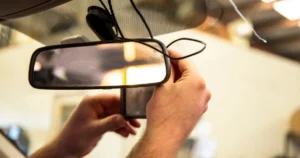 A statement or testimony from a witness can significantly increase your chances of recovering fair compensation for your damages after an accident. There are some instances when an important eyewitness may not want to testify at your trial, though. This could be for any number of reasons.
A statement or testimony from a witness can significantly increase your chances of recovering fair compensation for your damages after an accident. There are some instances when an important eyewitness may not want to testify at your trial, though. This could be for any number of reasons.
With an experienced attorney on your side, you may be able to convince an unwilling witness to testify on your behalf. Our South Bend car crash attorneys are prepared to help you through this process while simultaneously protecting the value of your case.
Below, we discuss some of the legal options available when dealing with reluctant witnesses during an accident case.
Can a Witness Be Issued a Subpoena for an Injury Case?
A subpoena is a normal part of the legal process after filing a lawsuit. Therefore, witnesses to an accident may be issued a subpoena.
It is important to understand what the purpose of a subpoena is, however, before establishing whether this common practice is relevant to your injury case.
There are three types of subpoenas during a legal proceeding:
- Witness subpoenas
- Subpoenas for production of evidence
- Deposition subpoenas
When a witness subpoena is issued, it means the person must appear in court to testify on behalf of a party to the lawsuit. If the issued subpoena is for a deposition, the witness must appear at a recorded question and answer session. Both parties to the lawsuit and their legal representatives must also be present.
Anyone who fails to comply with a subpoena will be held in contempt of court and could face other serious legal consequences.
Attorneys do not usually issue a subpoena to a witness in a civil case without first discussing what he or she witnessed and whether the person’s testimony will be important to the case. There is no point in issuing a subpoena to a witness who will not add value to the credibility of your claim.
How Do Attorneys Handle Reluctant Witnesses?
If a witness to your accident is hesitating to provide testimony on your behalf, there are several steps your attorney may consider.
First, your attorney needs to establish the strength of the witness’ testimony. For example, an eyewitness could be a pedestrian on a sidewalk who saw the aftermath of your collision. While this person’s testimony may help establish your post-accident medical condition, testimony from your doctor, along with your medical records, are likely proof enough. Therefore, this person’s testimony may not be as compelling as some other witnesses who saw the entire crash.
On the other hand, if a passenger in the at-fault vehicle witnessed the behavior of the at-fault driver, he or she may have a more powerful testimony. For instance, if the passenger witnessed the at-fault party driving under the influence or acting in a blatantly negligent manner, causing the crash.
If the reluctant witness’ testimony would provide significant validity to your claim, then your attorney’s next step would be to convince this person to testify on your behalf. In the majority of cases, witnesses are willing to testify, but occasionally, there may be some hesitation.
There are several reasons why a witness may hesitate to testify on your behalf, including:
- Privacy concerns
- Fear of retaliation
- Conflict in scheduling
- Concerns over past criminal records
- Afraid to get a friend/family member in legal trouble
Once your attorney determines why the witness is refusing to testify, he or she may attempt to reason with the individual. For example, a witness who is afraid of retaliation may need some reassurance. Your attorney may convince him or her to testify by explaining the legal repercussions the at-fault party could face for retaliating against a witness. Sometimes, however, stronger precautions may be necessary during the trial to ensure the protection of a witness.
It is part of your attorney’s job to build a strong case on your behalf, so getting a key witness to testify in court is important. However, if a witness refuses to testify, no matter what concessions are made, your attorney should still be able to build a case. This is why you need an attorney who has vast experience trying cases and handling eyewitnesses.
Are There Exceptions to Complying with a Subpoena?
Yes, there are some exceptions to complying with a subpoena. However, the exceptions are rare and most of the time there is a workaround. Some ways a person can avoid complying with a subpoena include:
- Avoiding the process of getting served the subpoena
- If testifying creates an undue burden on the witness
- If the testimony includes protected or privileged information
Subpoenas must be issued within a reasonable time before the date of the trial. A witness could possibly avoid legal trouble for failing to comply with a subpoena if there was not sufficient warning about the trial date.
Is It Always Necessary to Issue a Subpoena?
If a lawsuit has been filed and the case makes it at least as far as depositions during discovery, a subpoena is necessary. Attorneys usually forewarn witnesses about their involvement in a case.
A subpoena may not be necessary in an injury case if a lawsuit is never filed or if a case never makes it to the point of a deposition.
If the insurance company cooperates during settlement negotiations, your attorney may ask for an official witness statement, or affidavit, to help bolster your claim for compensation. However, a subpoena may not be necessary if you are offered a fair settlement.
Call an Experienced Attorney
Dealing with a reluctant witness is challenging. An experienced attorney knows how to reason with a hesitant or fearful witness to help get the testimony that could strengthen your claim.
Our attorneys have decades of experience building compelling cases for our clients and have successfully recovered millions on their behalf.
The consultation is free and there are no upfront fees.
We are prepared to help. Call (574) 444-0741 today.












